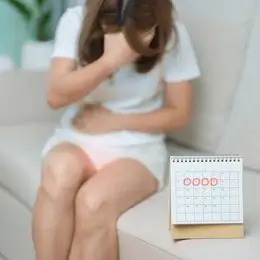Hey beautiful 💖
Have you ever felt off—like your mood is swinging, your skin is breaking out for no reason, or your energy crashes right after lunch? 😩 You’re eating “okay,” maybe even trying to be healthy, but something still doesn’t feel right?
Here’s a truth that’s often overlooked: sugar might be silently messing with your hormones. 🍭⚖️
Our hormones are delicate messengers that control everything from our mood and metabolism to our menstrual cycles and skin health. And when sugar sneaks in (hello cravings and stress-eating 🍫), it can throw everything out of sync.
In this post, we’re diving deep into how sugar affects your hormonal balance, especially for us women—because let’s face it, our bodies are unique and powerful, but also more sensitive to these hidden disruptors. 💪✨
Ready to learn the truth and take back control of your health? Let’s get into it! 💃🌿
How Sugar Affects the Endocrine System 🍭💔
Let’s talk hormones, sis. 🧠✨ These tiny chemical messengers basically run the show in our bodies — from how we feel emotionally, to how well we sleep, how clear our skin is, and even how much energy we have to make it through the day (or drag ourselves to that workout class 😅).
But when sugar enters the picture? Oh girl… things can get real messy behind the scenes. 🌀
🧠 The Endocrine System: Your Body’s Hormonal Headquarters
Imagine your endocrine system as your body’s personal “command center” 💼— a network of glands (like your ovaries, thyroid, adrenal glands, and pancreas) that keeps all your hormones in balance. Think: mood, metabolism, fertility, stress, and more.
But here’s the thing: this system thrives on stability… and sugar is anything but stable. 🙅♀️
🍬 Sugar Spikes = Hormonal Chaos
Every time you eat something sugary — whether it’s that “just one cookie” 🍪 or a caramel latte ☕ — your blood sugar rises quickly. This triggers your pancreas to release insulin, a hormone that helps your cells absorb that sugar and turn it into energy.
But when this happens all the time, your body can become insulin resistant — meaning your cells stop responding properly, and your body has to pump out even more insulin just to keep up. 😳
This constant rollercoaster 🌀 of sugar highs and crashes throws off more than just your energy levels — it affects your mood, your sleep, your cravings, and yes, your waistline too. 😬
💥 The Sugar-Stress Connection: Cortisol Takes a Hit
Stress and sugar? Besties… but in the worst way. 😩
When your blood sugar dips after a crash, your body releases cortisol, the stress hormone, to help “rescue” you. Cortisol tells your body: “We need fuel — fast!” — which is why you suddenly crave more sugar or carbs. 🍞🍫
Over time, this pattern can leave your adrenal glands overworked, and you feeling burned out, anxious, and even more dependent on sugar just to get through the day. 🔄
🚨 The Long-Term Fallout: Hormonal Imbalance
When sugar messes with your insulin and cortisol, it starts to impact other hormones too — like estrogen, progesterone, and testosterone. These are key players in your menstrual cycle, fertility, libido, skin clarity, and more. 🎯
Here’s what can happen over time:
- 🌸 Irregular periods
- 😖 Hormonal acne
- 🧁 Constant sugar cravings
- 💆♀️ Fatigue and mood swings
- 💔 Struggles with fertility or PCOS symptoms
Sound familiar? You’re not alone, girl. So many of us are dealing with these symptoms without realizing that sugar — yes, even the “healthy” kind — could be the sneaky saboteur behind it all. 😓
💡Takeaway: Your hormones crave stability, not sugar swings. By learning how sugar affects your endocrine system, you’re already one step closer to feeling more balanced, more energized, and more you. 💖🌿
Key Hormones Impacted by Sugar Consumption 🔄🍭
Okay queen — now that we understand how sugar throws your hormonal system out of balance, let’s break down which hormones are hit the hardest when we’re living that high-sugar life (even unintentionally 😬).
Because once you know who’s affected, you’ll better understand why you feel the way you do — and how to finally reclaim your energy, mood, and glow. 💃✨
🍬 Insulin: The Sugar Manager Gone Wild
Think of insulin as your body’s “sugar key.” 🗝️ Its job? To unlock your cells so they can take in sugar from your bloodstream and use it as fuel.
But here’s the catch…
When sugar is flooding your system constantly (hi, morning pastries, sweetened coffee, and “low-fat” yogurts 😅), your cells get tired of insulin knocking at their door. They stop responding — and that’s when insulin resistance kicks in. 😵
This can lead to:
- 🚨 Weight gain (especially belly fat)
- 🍽️ Intense cravings
- 🌫️ Energy crashes after meals
- 🩸 Risk of prediabetes or PCOS
😵💫 Cortisol: Your Stress Hormone on Overdrive
Remember her? Cortisol is the hormone your body releases when you’re stressed — emotionally or physically. And guess what? Blood sugar crashes = a stress signal. 🚨
So if you’re riding that sugar-crash rollercoaster all day, cortisol keeps sounding the alarm. 🔔
High cortisol levels can lead to:
- 😣 Anxiety or irritability
- 💤 Trouble sleeping
- 🛑 Hormonal belly fat
- 🍫 More sugar cravings (ugh, the cycle!)
Basically: sugar → blood sugar crash → cortisol spike → cravings → repeat. 🔄
💃 Estrogen and Testosterone: The Feminine (and Fierce) Hormones
Sugar doesn’t just affect energy and stress — it messes with your sex hormones too. 😳
Excess sugar and insulin resistance can cause a hormonal domino effect that disrupts the balance between estrogen and testosterone.
That imbalance might show up as:
- 🩸 Irregular periods or heavier flows
- 😵 PMS from hell
- 😢 Mood swings or low libido
- 😠 Hormonal acne (especially around jawline)
And if you’re living with PCOS, sugar can be a major trigger — increasing testosterone levels and making symptoms worse. 💔
🍽️ Leptin and Ghrelin: The Hunger Hormones
These two are supposed to keep your appetite in check, but sugar? It confuses the heck out of them.
- Leptin tells your brain you’re full. 🍽️
- Ghrelin tells you you’re hungry. 🍕
Too much sugar dulls leptin’s signal and boosts ghrelin. So even if you just ate, your body keeps screaming, “I’m hungry!” 😩
That’s why sugar makes you feel constantly hungry and never satisfied — especially right before your period when hormones are extra sensitive. 🎢
💡 Takeaway: Sugar doesn’t just cause weight gain — it disrupts your ENTIRE hormonal orchestra 🎻. Understanding these key hormones is step 2 in taking back control over your cycle, your mood, and your gorgeous self. 👑💕
Sugar and Female Hormonal Health 🌸💁♀️
As women, our hormones shift throughout the month — and sugar? It loves to take advantage of those fluctuations. 😤 Whether you’re dealing with PMS, breakouts, irregular periods, or PCOS, sugar might be making things way worse behind the scenes.
Let’s look at how.
💢 Sugar and PCOS: A Hormonal Storm
If you’ve been diagnosed with Polycystic Ovary Syndrome (PCOS), or even suspect you might have it, sugar is not your friend. 🚫
PCOS is closely linked to insulin resistance, and as we saw earlier, sugar triggers insulin production — which can throw off everything, especially testosterone levels. 🧬
Here’s how sugar worsens PCOS:
- 😣 Causes more irregular or absent periods
- 🧔 Increases facial hair or hair thinning
- 😠 Triggers stubborn acne (chin and jawline especially)
- ⚖️ Makes weight loss extra difficult
If you’ve been doing “all the right things” but still struggling with these symptoms — sugar could be the hidden culprit. 🙅♀️
🌸 Period Problems and Estrogen Overload

Too much sugar = more body fat → more estrogen production → estrogen dominance 😬
And that can look like:
- 🩸 Heavy, painful periods
- 😵💫 Crazy PMS mood swings
- 😴 Low energy and bloating
- 😢 Increased anxiety or depression right before your period
This kind of estrogen imbalance can also affect your fertility and increase the risk of fibroids or endometriosis. Sugar might taste sweet, but its effect on your cycle? Not cute. 🚫🍰
💥 Hormonal Acne and Inflammation
We’ve all been there — glowing one week, then suddenly breaking out like a teenager 😩💔
Here’s why sugar makes your skin freak out:
- It spikes insulin, which increases androgens like testosterone (hello breakouts 😤)
- It increases inflammation in the body, which triggers clogged pores and redness
- It affects your gut health, which is deeply connected to skin health
If your breakouts are always worse before your period, or centered around the jawline and chin — that’s hormonal acne, and sugar is likely part of the cause. 🍫➡️😡
💫 Fertility, Ovulation & Sugar’s Sneaky Role
Want to get pregnant one day — or just have a healthy, regular cycle? Sugar may be affecting your ovulation, even if your periods look “normal” on the outside.
Here’s how:
- 🧪 Insulin resistance can prevent ovulation entirely
- ⚖️ Estrogen and progesterone imbalances affect egg quality
- 😔 Chronic inflammation can damage reproductive health
It’s not about being perfect — it’s about creating a body that feels safe, supported, and in balance. And that starts by showing sugar the door 🚪👋
💡 Takeaway: Your female hormones are beautifully complex 🌷, but also incredibly sensitive to sugar. If you’re dealing with skin issues, cycle chaos, or PCOS symptoms — cutting back on sugar can literally change your life 💖
Signs You May Have a Sugar-Related Hormonal Imbalance 🚨💬
Sometimes, it’s not about big, scary diagnoses — it’s about those little everyday symptoms that we brush off as “normal” 😓. But girl, your body is always whispering to you. And when sugar is stirring up trouble with your hormones, it starts speaking louder. 📣
Let’s look at the red flags you should never ignore. 👇
😴 You’re Always Tired — Even After Sleeping
Do you wake up feeling like you’ve been hit by a truck? 🛌 Or need multiple coffees just to feel halfway human? ☕☕☕
That’s not just #adulthood — it could be your cortisol and insulin levels constantly crashing due to blood sugar instability.
Sugar-induced fatigue often looks like:
- 😩 Afternoon crashes (hello 3 PM slump)
- 💭 Brain fog and forgetfulness
- 😴 No energy for workouts or even socializing
Your body is basically burned out from trying to deal with sugar all day long.
⚖️ Weight Gain (Especially Around the Belly)
If you feel like you’re doing everything right but still gaining or struggling to lose weight — especially around your midsection — it could be hormonal, not just about calories. 🥺
Insulin resistance and high cortisol = stubborn belly fat. 😤
You might notice:
- Tight clothes in the waist, even if you haven’t changed your eating much
- A “puffy” or bloated look after sugary meals
- More weight gain during PMS or around your period
And no — it’s not your fault. It’s your hormones reacting to sugar’s constant disruption. ❤️
🩸 Irregular Periods or PMS That’s Out of Control
Sugar can throw off your estrogen and progesterone balance, which means your cycle may start acting up. 🔁
Signs to watch for:
- ⏳ Late or missing periods
- 😖 Painful cramps or very heavy flow
- 😤 PMS mood swings that feel like emotional whiplash
- 🤷♀️ Cycles that keep changing in length
If your cycle feels unpredictable and your PMS has you crying over commercials or snapping at everyone 😅 — it might be time to look at sugar’s role in your hormonal dance.
🧖♀️ Skin Issues, Hair Loss, or Breakouts
You’ve tried the skincare. The serums. The facials. But if your hormones are out of whack? No cream can fix that from the outside in. 🙅♀️
What you might be seeing:
- 🔥 Acne flare-ups (especially jawline/chin)
- 😔 Thinning hair or more hair fall
- 😩 Skin that’s dry, inflamed, or suddenly oily
All of this can be tied to a combo of high insulin, testosterone, and inflammation — triggered by (yep, you guessed it) sugar.
💡 Takeaway: These symptoms aren’t random — they’re messages from your body, telling you it’s time to rebalance ✨. And one of the biggest things you can do? Start reducing sugar and stabilizing your blood sugar. Your hormones (and your glow) will thank you. 💃🌿
How to Reduce Sugar and Rebalance Your Hormones Naturally 🍓⚖️
Okay queen, we’ve talked about how sugar sneaks in and messes with your hormones 😩 — but now let’s shift the vibe ✨
This is where the healing begins. This is about nourishing your body, not punishing it 💕. Cutting back on sugar doesn’t mean giving up joy — it means giving your body peace ☁️💆♀️
Here’s how to make that happen:
🥗 Step 1: Eat to Balance Your Blood Sugar (Not Starve Yourself!)
You don’t need to count every gram or go keto — the goal here is blood sugar stability, aka: no more crashes, cravings, or mood swings 💃
✅ Here’s what helps:
- Always pair carbs with protein or fat
(Example: Apple 🍎 + almond butter = yes, queen!) - Start your day with protein, not sugar
(No more sugary cereal or toast with jam 🙅♀️ — think eggs, chia pudding, Greek yogurt with nuts) - Add fiber-rich veggies to every meal
(Spinach, zucchini, broccoli, avocado 🥑 — your hormones love fiber)
📌 Pro tip: The fewer blood sugar spikes = the more balanced your insulin, cortisol, estrogen, and mood. It’s magic 🪄
🚫 Step 2: Ditch Hidden Sugars (Without Losing Your Mind)
Sugar is sneaky AF. It hides in “healthy” foods like:
- 🍯 Flavored yogurts
- 🥫 Granola bars
- 🥤 Fruit juices & smoothies
- 🍝 Store-bought sauces and dressings
🧐 Start reading labels — look for ingredients like fructose, glucose, maltodextrin, syrup, cane juice, etc.
But don’t stress — focus on crowding out, not cutting out. Fill your plate with real, whole foods, and the cravings naturally ease. 🌿💕
💆♀️ Step 3: Support Your Hormones Holistically
You can’t heal your hormones with food alone — your lifestyle matters too, babe!
✨ Try this:
- Prioritize sleep 😴 (7–9 hours = hormonal reset)
- Move daily, even just a walk 🚶♀️ (supports insulin sensitivity + stress relief)
- Manage stress (meditation, journaling, deep breathing, time in nature — yes, you deserve it 🌸)
- Ditch the guilt. You’re not bad for eating sugar — awareness is power, not punishment. 🙏
And yes — you can still have treats. Just make them intentional. Light a candle, eat slowly, savor the bite 🍫🕯️ That’s how you stay balanced without feeling restricted 💫
💖 Step 4: Gentle Supplements That Can Help
(Not medical advice — always check with your doctor 💬)
But these can support hormone balance:
- Magnesium (calms the nervous system, improves insulin sensitivity)
- Omega-3s (reduces inflammation & supports skin, mood, and hormones)
- Cinnamon (can help stabilize blood sugar when used in meals)
- Myo-inositol (great for PCOS & insulin regulation)
Supplements are helpful, but food and lifestyle are your foundation 🪴
💡 Final Takeaway:
Reducing sugar isn’t about being perfect — it’s about showing up for your body with love and intention 💕 You’re allowed to feel good. You’re allowed to glow. And your hormones? They just want a little peace and consistency 🌼
You’ve got this, beautiful. Step by step, you’re healing 💃🍃
Conclusion: Your Body Is Talking — Are You Ready to Listen? 💞✨
Beautiful soul, if you’ve been feeling off lately — tired, moody, bloated, breaking out, or just not yourself — you are not crazy. You are not weak. And you are absolutely not alone. 🌸
Your body isn’t broken…
She’s just asking for support. 🤍
And sugar? As sweet as it tastes, it may be whispering lies to your hormones, leaving you exhausted and out of balance. But the good news? You have the power to change that — starting today. 🌿✨
With every nourishing meal 🥗, every gentle choice 🚶♀️, every moment of self-kindness 💆♀️ — you are telling your body:
“I see you. I hear you. I’m ready to help you heal.” 💖
So take it one step at a time, love. No guilt. No extremes. Just small, loving shifts toward the balanced, radiant version of you that’s been there all along. 🌺
You deserve energy. You deserve peace.
And yes — you deserve to feel like a queen in your own body. 👑
💬 Tell me in the comments: Which symptom resonated the most with you? Are you ready to cut back on sugar and give your hormones the love they crave? Let’s support each other on this journey 💕👇
Recommended Readings and Expert Advice 📚✨
If you want to dive deeper into the connection between sugar and hormonal health, these trusted resources and experts are gold:
- “The Hormone Cure” by Dr. Sara Gottfried, MD
A brilliant book that explains how hormones affect women’s health and practical ways to restore balance naturally. - “Women, Food, and Hormones” by Dr. Sara Gottfried, MD
Focuses on how diet impacts female hormones and offers actionable nutrition advice. - Dr. Mark Hyman’s articles on insulin resistance and hormone balance
Dr. Hyman is a leading expert in functional medicine and often writes about how sugar and insulin affect overall health. - PCOS Nutrition Center
An excellent resource for women managing PCOS, with tips on diet, supplements, and lifestyle changes to support hormonal balance.
Website: pcosnutrition.com - The Endocrine Society
A reliable source for the latest research and guidelines on hormone-related health topics.
Website: endocrine.org - NutritionFacts.org – Dr. Michael Greger
For science-backed insights on nutrition and its impact on hormones and metabolism.
Website: nutritionfacts.org
Sources and Further Reading 🔗
- Mayo Clinic. Insulin resistance — https://www.mayoclinic.org/diseases-conditions/insulin-resistance/symptoms-causes/syc-20354590
- Cleveland Clinic. How Sugar Affects Hormones — https://health.clevelandclinic.org/does-sugar-affect-your-hormones/
- Harvard Health Publishing. The effects of sugar on hormones — https://www.health.harvard.edu/blog/sugar-and-your-hormones-2019111918323
- National Institute of Diabetes and Digestive and Kidney Diseases (NIDDK) — https://www.niddk.nih.gov/health-information/diabetes/overview/what-is-diabetes/insulin-resistance
- PCOS Awareness Association — https://www.pcosaa.org/
- The American College of Obstetricians and Gynecologists (ACOG). Hormonal Imbalance — https://www.acog.org/womens-health/faqs/hormonal-imbalances
- PubMed Central: Effects of dietary sugar on hormones — https://www.ncbi.nlm.nih.gov/pmc/articles/PMC4997438/


